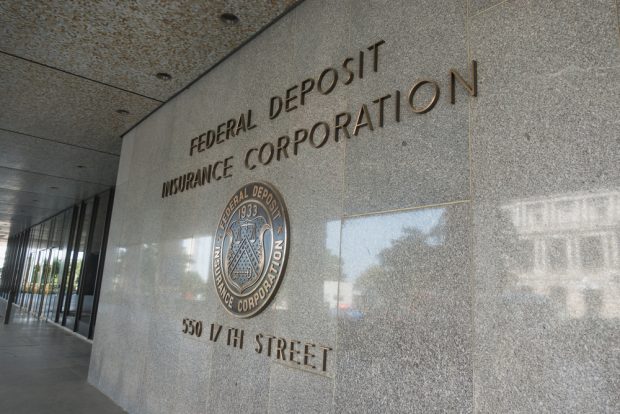TAMPA, Fla. - In the credit union credit card processing realm it doesn't get much bigger than this. In a move which one employee said resembled a homecoming, the $4.2 billion SunCoast Schools FCU decided to switch processors from First Data Corporation and to leave the PSCU Financial Services cooperative. PSCU Financial Services offers its card services cooperative with over 500 credit unions who process their transactions with First Data. The move brings a portfolio of $275 million, the third largest credit union card portfolio in the country, to Certegy, which is headquartered in Alpharetta, Georgia. The shift represented an element of a homecoming for Suncoast, also headquartered in Tampa, which had processed with Equifax, Certegy's predecessor, before leaving for First Data, explained Sandy Piatt, vice president of card services for the credit union. She said that the credit union's contract with PSCU Financial Services had expired and that the credit union had made its decision after a comprehensive review. "We chose Certegy based on a very thorough staff review of the top vendors," stated Linda Darling, executive vice president and chief financial officer of Suncoast. "Advantages of partnering with Certegy include enhanced marketing opportunities and support, a flexible and user friendly system and leadership commitment to assist us in continuing our highly successful credit card program," she added. Suncoast's move is another small chapter in the rivalry between PSCU and First Data, and Certegy and Card Services for Credit Unions, the association of credit unions which processes card transactions with Certegy. Credit unions, among them Suncoast, which had been unhappy with Equifax's, then Certegy's parent company, split off in the late 1970s to form PSCU and there has been a rivalry in the credit union space between the firms ever since. But David Serlo, CEO of PSCU, explained that this was not the first time that Suncoast had jumped back and forth between the two firms. According to Serlo, Suncoast had been among the first credit unions to have helped found PSCU, but that the credit union had taken its card processing back to Certegy in 1989 when PSCU moved to First Data as its card processor. "They came back to us six years ago," Serlo said, "and we have had six very productive years working with them. They have a very good team and there is nothing but goodwill between us. As disappointing as it is of course, we have to honor their decision to do what is best for their program." No one from CSCU had yet become available to comment on the proposed switch, though Certegy's vice president for investor relations, Mary Waggoner, said the firm was "very excited" by the move. "Of course we tend to see it as validation of our continuing efforts to improve the card services we are able to offer credit unions," Waggoner said. Suncoast Schools saw an increase in its outstanding balances of 35% in 2003, while still with PSCU. According to NCUA data, the credit union has a card portfolio of more than 100,000 accounts with outstanding balances of $275 million. In terms of households, Darling has said Suncoast's cards have penetrated 34% of the CU's membership. "We're aiming to see 35% growth again this year, so the marketing support we were able to get with Certegy meant a lot to us," she added. One key factor in the credit union's decision was that Certegy has moved to a Windows-based system for its card platforms and Suncoast found this approach much more user friendly and easier to train with than on First Data's approach. "First Data still uses a DOS-based system, what they call a green screen, for its data," Darling said, "and that is a significant training barrier for us to have to use when we wanted to bring as many employees who will be interacting with members up to speed on the card program," added. She said the credit union was impressed as well with Certegy's willingness to team with the Suncoast card program and to share the credit union's growth goals. Because the credit union is so large it owns its own BIN numbers and will not have to issue new plastics to its members, Darling explained. But she also indicated that the credit union didn't expect a completely smooth transition. "Whenever you switch processors there are bound to be some hiccups, but we are expecting to be able to resolve those," she said. She said the credit union hopes to convert systems in six months. Darling said the credit union expected to meet its 2003 growth of 35%, but does expect slower growth due to the conversion. "Whenever you convert a portfolio there is always a period of time when you are not doing the usual upgrading of cards or other sorts of marketing efforts," Darling said. She said the credit union hoped to keep those delays to a minimum but had no guarantees. Significantly, she did not necessarily see the spate of recent hurricanes in Florida as hurting Suncoast's card portfolio growth. She pointed out that the credit union increased the balances of card holders in the most significantly damaged nearby counties and that demand for credit was there. Darling explained that none of the credit unions counties were as badly damaged as the area around Pensacola. In those areas, which may not return to their pre-hurricane economic life for some weeks, things like credit card volumes and other economic activity very well might be slowed. -
© Touchpoint Markets, All Rights Reserved. Request academic re-use from www.copyright.com. All other uses, submit a request to [email protected]. For more inforrmation visit Asset & Logo Licensing.






